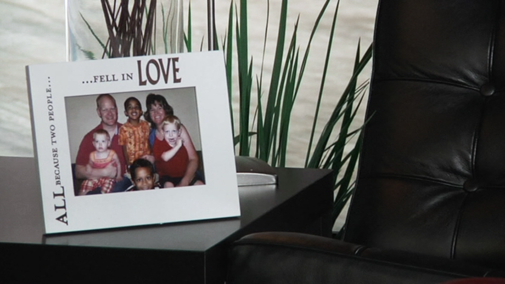Made for Life, Part 5: "We were open to life, whether through…giving birth or through the adoption process."
Background: This is part 5 of the Viewer’s Guide that accompanies the video “Made for Life.” Previous sections include: 1) openness to life; 2) gift of self and gift of life; 3) children as a gift; 4) the call to welcome a child and be a child. In part 5, we’ll look at the witness of infertile couples and of those couples who adopt a child. In that context, we’ll reflect on how openness to life is essential for all marriages, not just those that are blessed with children.

“We were open to life, whether through…giving birth or through the adoption process.”
As Kevin and Brenda witness in the video, openness to life has a meaning more profound than popularly recognized today. In the midst of recent attempts to “redefine” marriage, the objection is sometimes raised that there are many husbands and wives who are unable to have children. What makes them different from a relationship between two persons of the same sex, who also can’t have children of their own?
The truth is, there is an unbridgeable difference between a spousal union (a male-female couple united as husband and wife) and a relationship between two men or two women. This difference is sexual difference. First, conceiving a child requires the joint action of both a man and a woman. This intimate participation in conceiving a child is simply impossible for two persons of the same sex. Two men or two women cannot—ever—have a child together. [i]
Second, sexual union between a husband and wife is the kind of union apt for generation. That is, male-female intimacy is the natural route through which a child comes into the world. There are times when a husband and wife may be unable to conceive a child due to infertility or sterility (for reasons beyond their control) or advanced age. Still, their sexual union remains the kind of union that expresses total self-gift and openness to the gift of the child. [ii] The situation is very different for two persons of the same sex. Even if both are young and perfectly healthy, any sexual behavior between them can never form a true union and will never be able to welcome a new child into the world.
The painful cross of infertility does not mean that a couple’s marriage is not fruitful. As Pope John Paul II taught, “Physical sterility . . . can be for spouses the occasion for other important services to the life of the human person, for example, adoption, various forms of educational work, and assistance to other families and to poor or handicapped children.” [iii] In particular, the Church praises adoption as an expression of “true parental love,” which “is ready to go beyond the bonds of flesh and blood in order to accept children from other families.” [iv]
Adoption, as a response to a tragedy or loss, is never meant to be held up as an “alternative” to the natural family of father, mother, and their children. Instead, adoption “takes its form” from the natural family. There is a difference between generously responding to an abandoned child’s need for a mother and a father, on the one hand, and deliberately depriving a child of a mother and a father by placing him or her in the care of two men or two women.
In sum, openness to life is essential to every marriage. Husbands and wives who are not blessed with children of their own still exemplify the fruitful communion of persons in a way two persons of the same sex never can. This communion, built on the sexual difference between husband and wife, opens the door to adoption and to other generous forms of service while still respecting the beauty of sexual difference, the needs of children, and the indispensable place of mothers and fathers.